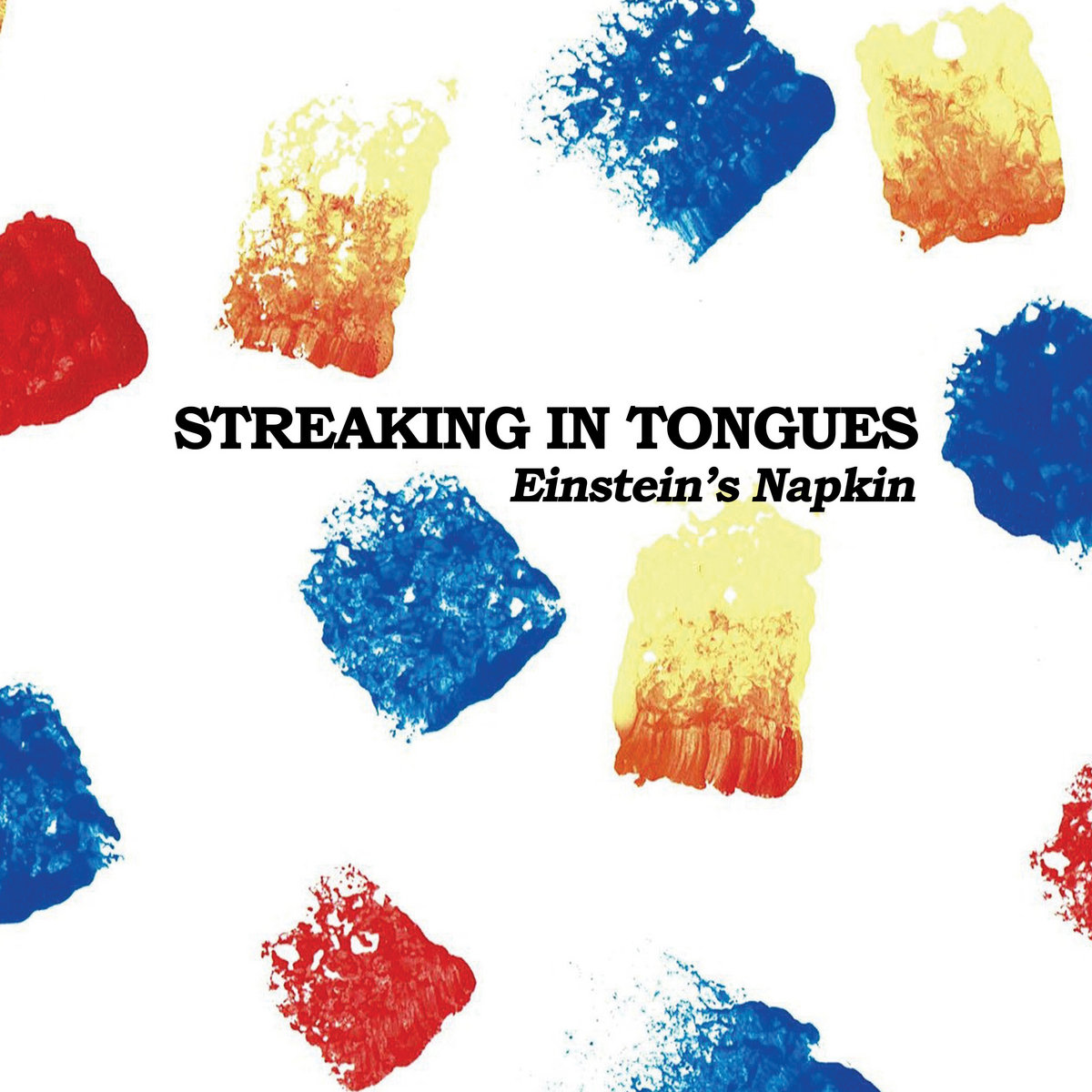A fifteen-track instrumental album inspired by Michigan poet Marty Achatz mixing progressive, folk, indie rock, and jazz influences may seem to guarantee an eye-roll-inducing amount of pretentiousness.
Streaking in Tongues’ Einstein’s Napkin defies such expectations. I’m suitably impressed. The fifteen performances recorded by father and son team Ronnie and Elliott Ferguson never overreach. Only two of the songs run longer than three minutes, and the focus this suggests propels the collection from beginning to end.
URL: https://www.streakingintongues.com/
It’s a level of focus that likewise suggests the Fergusons had a clear vision in mind when they recorded this album. It’s a vision firmly in place from the outset. “Lumbering Along Bluff Creek” establishes the release’s identity. Short instrumentals define Einstein’s Napkin; they strike me as scenes, or musical vignettes, rather than cinematic compositions. The arrangement does an excellent job of embodying the physicality of the song’s title. However, there’s obviously great care taken with the playing and arranging.
The same deliberate mood colors “Love and Need”. Jazzy influences stand out from this short instrumental without ever hitting upon a purist vibe. I can envision a larger band arrangement around this song, the potential is there, but few open-minded listeners will begrudge Streaking in Tongues’ brevity. It features one of the album’s many winning melodies. There’s a case to be made that Streaking in Tongues essentially operates as a trio for this release. The presence of tenor and alto saxophonist Patrick Booth impacts the feel of many songs. His near-ghostly presence during “Hovering in the Jacklight” imbues the instrumental with a lonely instrumental voice that seems to brood in near-darkness.
“The Grief of the Answer” is one of the most accessible compositions recorded for Einstein’s Napkin. Much of its achievement rests on the clearly defined guitar figure functioning as the song’s center but the secondary instrumental contributions are important. Six-string aficionados are likely to admire the guitar sound that the band seizes on for these songs, and one of the most impactful examples of that aural signature comes with this cut.
“God’s Eyelashes” floats by listeners with a dream-like ambiance. Experimental touches further diversify its character. Patrick Booth makes his influence felt with a deceptively disjoined saxophone introduction and continues exerting a meaningful presence throughout the performance. They hit another peak with the song “A Black Hole with Legs”. It’s a departure from the album’s prevailing mood with its distinct turn towards the intense, but the foundational aesthetic they build on is as recognizable as ever.
The brief instrumental sketching of “Gobbling Silence” is another example of how the band takes a seemingly simple melodic idea and crafts a coherent piece from spartan elements. Streaking in Tongues’ reliance on the interplay between guitar and saxophone is the key here, and the intimate dialogue they share is as natural as breathing. The closer “Sunlight After a Blizzard” emphasizes a sense of place that the collection shares with Achatz’s poetry. It has an effect on me akin to looking at the pristine emptiness implied by the song’s title, and the Fergusons’ ability to give sound to such a moment resonates as the album’s parting shot. Streaking in Tongues’ Einstein’s Napkin occupies a distinctive niche in the modern musical firmament, and its light shines brighter than most.
Jodi Marxbury
